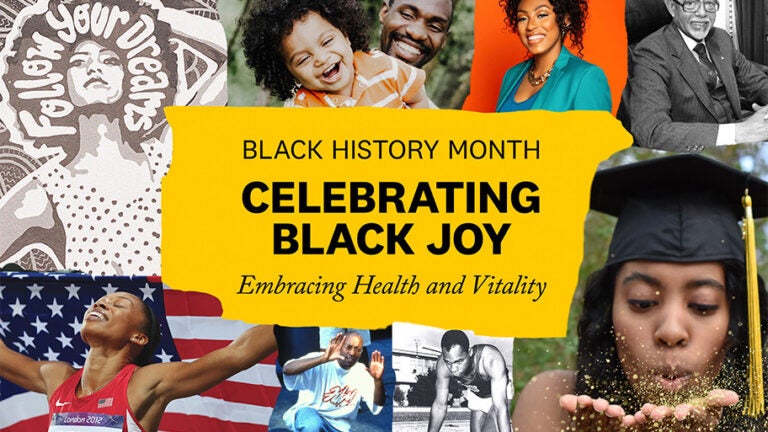
Black History Month: health, wellness and a generous dose of joy
Black History Month takes on new importance as Black leaders draw attention to health — including mental and spiritual health — as a theme for this year’s commemoration. With a nod to that inclusive definition of health, USC has adopted the theme of “Celebrating Black Joy: Embracing Health and Vitality” for its own campus-wide events and activities.
USC experts pause to consider how the continuing fight for racial and social justice takes a toll on the bodies and minds of Black Americans, and how joy and wellness are crucial for their strength and resilience.
Black Joy is at the center of Black identity
“At the core or center of Black culture, Black identity, Black art, Black ideology and Black community is joy,” said Anita Dashiell-Sparks, professor of theater practice and associate dean of equity, diversity and inclusion at the USC School of Dramatic Arts. “Black joy is the heartbeat and pulse of our survival, our resiliency, our perseverance, our health and well-being.”
Joy may not be the first thing many think of when it comes to the struggles for racial justice. Research conducted at USC has shown that racism harms the physical health of Black Americans.
“The Black Lives Matter movement has, in the past few years, rightfully turned the focus of the world to the persistence of violence against Black people and their bodies,” said Alaina Morgan, assistant professor of history at the USC Dornsife College of Letters, Arts and Sciences.
Although that singular focus can obscure the diversity of the Black experience, she said Black people have responded to violence by “creating beauty, expressing joy, and radiating pride in their Blackness.”
Morgan’s research focuses on the ways that Black people engage with religion, in particular Islam, to dream “of a better, more equitable and more just world.”
“Examining these formations, as well as other forms of Black production like art, music, poetry and literature, respects the complexity of Black people as human beings who are resilient, creative, productive and, yes, joyful,” she explained.
Faith nourishes the Black community during the pandemic
The Rev. Najuma Smith-Pollard, assistant director of community and public engagement at USC Dornsife’s Center for Religion and Civic Culture, finds her joy in the nexus between faith and activism. “My faith informs my activism. I think that’s the case for a lot of people in the Black church,” she noted.
Smith-Pollard combines her experience as a pastor and expertise as a community leader to help faith leaders become full partners in the work of social change. She described how during the COVID-19 pandemic, she and other faith leaders had to go virtual while still serving the community. The experience affirmed “the church is not defined by its walls and pews and pulpit” but rather “by what we do for the people — feeding people in need, testing for COVID, providing information to communities of color.”
“It also maintained that place where people can come and get their spirit fed,” she said. “That’s so important in a pandemic.”